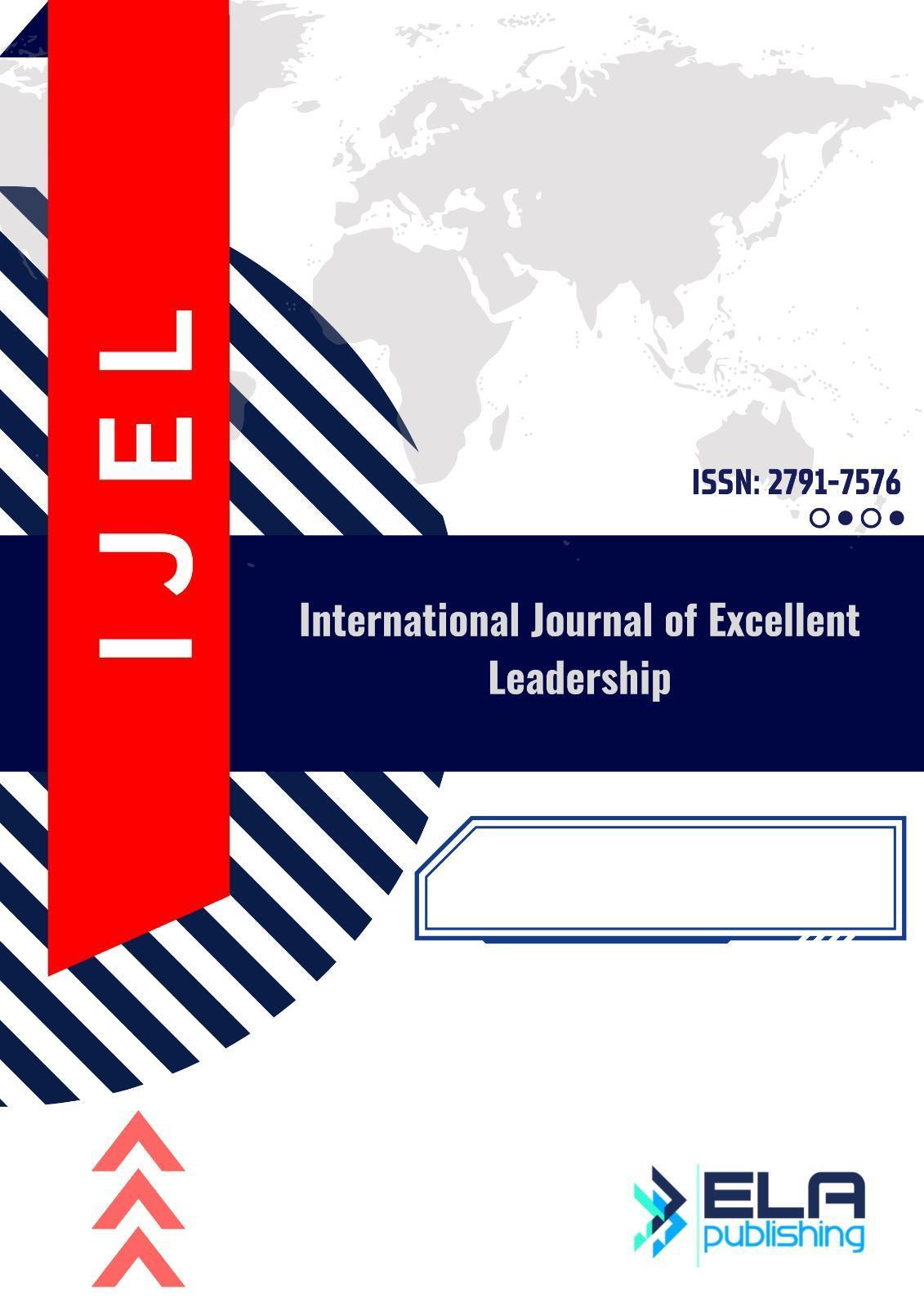Research article | Open Access
International Journal of Excellent Leadership 2024, Vol. 4(2) 17-25
Expanding The Limits of Mathematics: Interdisciplinary Education Experiences
pp. 17 - 25
Publish Date: December 31, 2024 | Single/Total View: 63/26 | Single/Total Download: 64/29
Abstract
This study aims to examine the effects of interdisciplinary approaches in elementary school mathematics lessons and their implementation in the classroom. The study examines teachers' views on interdisciplinary approaches, the difficulties they face when implementing these approaches, and their effects on students' attitudes and motivation towards mathematics lessons. The study was conducted with a case study design, one of the qualitative research methods. The study group consisted of 10 classroom teachers working in Van province. A semi-structured interview form was used as data collection tools. In the interviews, teachers' implementation processes of interdisciplinary approaches, the difficulties they face and the effects of these approaches on student achievement were examined in depth. The data were analyzed using content analysis method. The findings of the study show that teachers generally associate interdisciplinary approaches with Turkish, Science, Social Studies and Life Sciences courses. In addition, the interdisciplinary approach was found to improve students' mathematical thinking skills and increase their motivation for mathematics. However, some teachers reported difficulties in implementing these approaches due to the intensity of the curriculum. In conclusion, interdisciplinary approaches have positive effects on student motivation and achievement. However, educational policies need to be strengthened to overcome the difficulties faced by teachers. In this direction, it is recommended that interdisciplinary trainings for teachers should be expanded and classroom materials should be diversified.
Keywords: Interdisciplinary approaches, primary school mathematics teaching, mathematics lesson
APA 7th edition
Sahin, M., Turbil, H., & Sahin, M. (2024). Expanding The Limits of Mathematics: Interdisciplinary Education Experiences. International Journal of Excellent Leadership, 4(2), 17-25.
Harvard
Sahin, M., Turbil, H. and Sahin, M. (2024). Expanding The Limits of Mathematics: Interdisciplinary Education Experiences. International Journal of Excellent Leadership, 4(2), pp. 17-25.
Chicago 16th edition
Sahin, Murat, Hursit Turbil and Mehtap Sahin (2024). "Expanding The Limits of Mathematics: Interdisciplinary Education Experiences". International Journal of Excellent Leadership 4 (2):17-25.
Aybek, B. (2001). Disiplinlerarası öğretim yaklaşımı. Eğitim Araştırmaları Dergisi, 3, 1-7.
Brandt, R. (1991). On interdisciplinary curriculum: A conversation with Heidi Hayes Jacobs. Educational Leadership, 49(1), 1-8.
Brown, C. (2021). Interdisciplinary teaching in the classroom: A framework for integrating multiple disciplines. Journal of Educational Practice, 15(3), 75-89.
Bybee, R. W. (2013). The case for STEM education: Challenges and opportunities. NSTA Press.
Chen, W., Cone, T. P., & Cone, S. L. (2007). A collaborative approach to developing an interdisciplinary unit. Journal of Teaching in Physical Education, 26, 103-124. https://doi.org/10.1123/jtpe.26.2.103
Cohen, L., Manion, L., & Morrison, K. (2007). Research methods in education (6th ed.). Routledge.
Creswell, J. W. (2013). Research design: Qualitative, quantitative, and mixed methods approaches (4th ed.). Sage.
Demirel, Ö. (2010). Öğretme sanatı. Pegem Akademi Yayıncılık.
Demirel, Ö., Tuncel, İ., Demirhan, C., & Demir, K. (2008). Çoklu zekâ kuramı ile disiplinler arası yaklaşımı temel alan uygulamalara ilişkin öğretmen-öğrenci görüşleri. Eğitim ve Bilim Dergisi, 33(147), 14-25.
Drake, S. M., & Burns, R. C. (2004). Meeting standards through integrated curriculum. ASCD.
Duman, B., & Aybek, B. (2003). Süreç-temelli ve disiplinlerarası öğretim yaklaşımlarının karşılaştırılması. Muğla Üniversitesi Sosyal Bilimler Enstitüsü Dergisi, 11, 1-12.
Eisner, E. W. (2002). What can education learn from the arts about the practice of education? John Dewey Lecture. Retrieved from http://www.infed.org/biblio/eisner_ arts_and_the_practice_of_education.htm (Accessed: 29/11/2024).
Işık, K. D. (2007). Çoklu zeka kuramı destekli kubaşık öğrenme yönteminin ilköğretim dördüncü sınıf öğrencilerinin matematik dersindeki akademik başarılarına ve kalıcılığa etkisi. (Unpublished master's thesis). Çukurova University, Institute of Social Sciences, Adana.
Karakuş, M., Türkkan, B. T., & Karakuş, F. (2017). Fen bilgisi ve ilköğretim matematik öğretmenlerinin disiplinlerarası yaklaşıma yönelik görüşlerinin belirlenmesi. İlköğretim Online, 16(2), 509-524. https://doi.org/10.17051/ilkonline.2017.304714
Kocabaş, A. (2022). Disiplinlerarası yaklaşımda bir model önerisi: Müzikle matematik öğretimi. Disiplinlerarası Eğitim Araştırmaları Dergisi, 6(12), 125-137.
Lesh, R. A., & Doerr, H. (2003). Foundations of model and modeling perspectives on mathematical teaching and learning. In R. A. Lesh & H. Doerr (Eds.), Beyond constructivism: A models and modeling perspective on mathematics teaching, learning, and problem solving (pp. 1-19). Lawrence Erlbaum.
Miles, M., & Huberman, A. (1994). Qualitative data analysis: An expanded sourcebook. Sage.
Mousoulides, N. G., Christou, C., & Sriraman, B. (2008). A modeling perspective on the teaching and learning of mathematical problem solving. Mathematical Thinking and Learning, 10(3), 293-304. https://doi.org/10.1080/10986060802218132
McDonald, J., & Czerniak, C. (1994). Developing interdisciplinary units: Strategies and examples. School Science and Mathematics, 94(1), 5-10.
MEB. (2018). Matematik dersi öğretim programı. Ankara: MEB.
OECD. (2019). PISA 2018 results (Volume I): What students know and can do. OECD Publishing.
Ürey, M., Çepni, S., & Yıldız, C. (2013). Serbest etkinlik çalışmaları dersi kapsamında geliştirilen disiplinlerarası okul bahçesi programının öğrencilerin bazı matematik kazanımları üzerine etkisinin değerlendirilmesi. Journal of Turkish Science Education, 10(3), 37-58. https://doi.org/10.17051/io.2017.00068
Wronski, S. P. (1981). Social studies around the world. In H. D. Mehlinger (Ed.), UNESCO handbook for the teaching of social studies. Crolm Helm.
Yıldırım, A., & Şimşek, H. (2005). Sosyal bilimlerde nitel araştırma yöntemleri (5th ed.). Seçkin Yayıncılık.
